‘Other wannabe Putins await to sow death and destruction’
Your digest of analysis from the British and international press
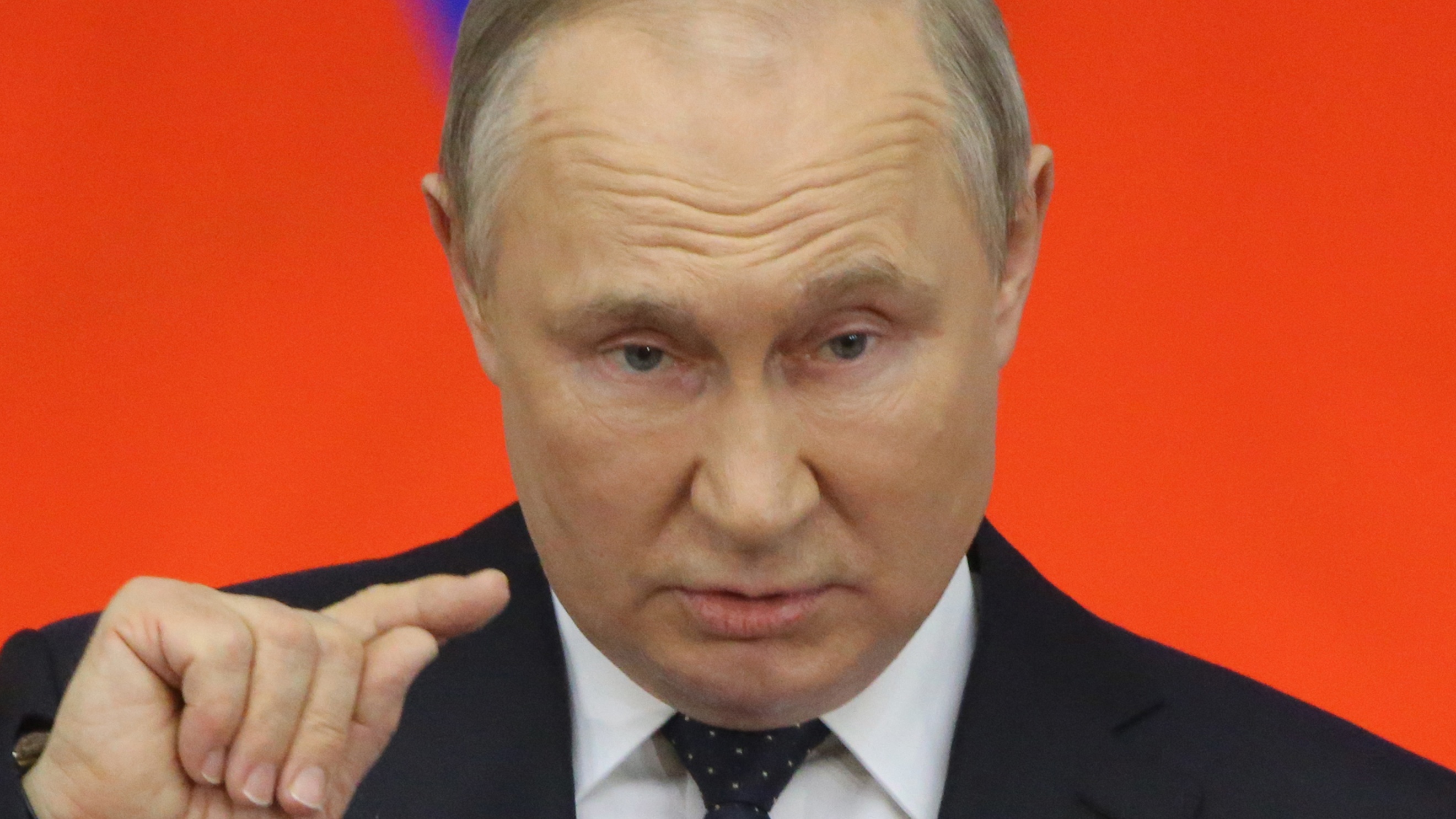
A free daily email with the biggest news stories of the day – and the best features from TheWeek.com
You are now subscribed
Your newsletter sign-up was successful
1. World War Three is far more likely than anyone is prepared to admit
Allister Heath in The Telegraph
on global tensions
“We have been remarkably lucky so far,” writes Allister Heath in The Telegraph. “Human beings invented nuclear weapons 77 years ago, but haven’t used them to slaughter each other since Nagasaki” in 1945, towards the end of the Second World War. “With good fortune comes hubris and complacency: the chances of another major global conflict – and, at worst, another world war – are much higher than we realise, and are continuing to increase”, said Heath. “The fact that Russia has performed so poorly on the Ukrainian battlefield is good news, but should not lull us into a false sense of security.” With the post-1945 consensus now “withered”, our world “is becoming more, rather than less, dangerous: there are plenty of other wannabe Putins, and they are better equipped to sow death and destruction”.
The Week
Escape your echo chamber. Get the facts behind the news, plus analysis from multiple perspectives.

Sign up for The Week's Free Newsletters
From our morning news briefing to a weekly Good News Newsletter, get the best of The Week delivered directly to your inbox.
From our morning news briefing to a weekly Good News Newsletter, get the best of The Week delivered directly to your inbox.
2. Why success in life is the art of the possible
James Marriott in The Times
on the power of imagination
“While still in college, Joe Biden started producing a detailed plan for his future presidential campaign,” writes James Marriott in The Times. Similarly, a nine-year-old Barack Obama, while at school in Indonesia, “wrote in an essay that he intended to become president”, he continues. When we discuss success, “we rightly invoke drive, work ethic and wealth. But too rarely mentioned is imagination”, Marriott writes. “Perhaps it sounds wishy-washy. But a crucial determinant of success is your sense of the possible.” There are “many brilliant adult men and women” who might have reasonable grounds to aspire to the heights as a young Obama, “but who will never try because the idea seems preposterous”. Of course, success often requires “money, contacts, intelligence or the nepotistic intervention of powerful relatives”, he continues. “But without those advantages, imagination is not useless.”
A free daily email with the biggest news stories of the day – and the best features from TheWeek.com
3. Eight years ago, I investigated sexism in Westminster – what has changed?
Cathy Newman in The Independent
on MPs and sleaze
“How little has changed”, writes Cathy Newman for the Independent, since she investigated a culture of harassment in Westminster in 2014. After a male Conservative MP was reportedly seen watching porn in the House of Commons by two of his colleagues, it seems that “sexual misconduct is so much part of the political fabric it’s still sitting very comfortably on the famous green benches”, she continues. “Westminster is awash with alcohol, egos and driven, ambitious people. These are not conditions conducive to a respectful environment. All the more reason, then, that complaints are processed expeditiously and perpetrators dealt with firmly,” said Newman.
4. Your kids can handle dangerous ideas
Matt Gross in the New York Times
on parental guidance
When it comes to raising children these days, it seems that “parents – or at least the parents who seem to win media attention – are freaking out over everything their kids see, read and do,” writes Matt Gross for The New York Times. The Disney Pixar movie Turning Red was criticised by some parents for promoting “bad values” and a portrayal of puberty and metaphorical menstruation that some found “too mature for an impressionable audience”. For other parents, “any discussion of L.G.B.T.Q. issues is the boogeyman”. When it comes to these hawkish parents, “I understand the desire to coax your children to think and live as you do. I mean, who wants his or her progeny to reject wholesale the values, tastes and beliefs they’ve been brought up in?” writes Gross. However, “to me, the more hands-off approach is also the more realistic one”, he continues. “It acknowledges that our children are, in some basic sense, beyond our control: not precious innocents to be culturally cocooned, but thinking, feeling, increasingly independent human beings who are busy making up their own minds.”
5. Robots in rockets outperform ‘spam in a can’ astronauts
John Thornhill in the Financial Times
on redundancies in space
“Technology transforms jobs, rarely does it eliminate them,” writes John Thornhill in the Financial Times. “But there are exceptions: lamplighters, elevator attendants and telegraph operators have all but disappeared. Astronauts might soon be added to that list, according to two space experts,” he continues. That’s because “robots are capable of exploring the universe more speedily, cheaply and safely than ‘spam in a can’ (as early astronauts called themselves).” While writing astronauts “out of the space exploration script would be painful”, it is true that the costs of sending humans into space are “astronomical” and “beyond boosting the world’s feelgood factor, astronauts do not do much that robots could not now do better”. And while some argue “that turning Homo sapiens into a multi-planetary species is a sensible insurance against a mass extinction event on planet Earth”, there is an “even stronger argument for ensuring we preserve our miraculous home rather than trying to terraform a planet B”.
-
 Pentagon spokesperson forced out as DHS’s resigns
Pentagon spokesperson forced out as DHS’s resignsSpeed Read Senior military adviser Col. David Butler was fired by Pete Hegseth and Homeland Security spokesperson Tricia McLaughlin is resigning
-
 Colbert, CBS spar over FCC and Talarico interview
Colbert, CBS spar over FCC and Talarico interviewSpeed Read The late night host said CBS pulled his interview with Democratic Texas state representative James Talarico over new FCC rules about political interviews
-
 The Week contest: AI bellyaching
The Week contest: AI bellyachingPuzzles and Quizzes
-
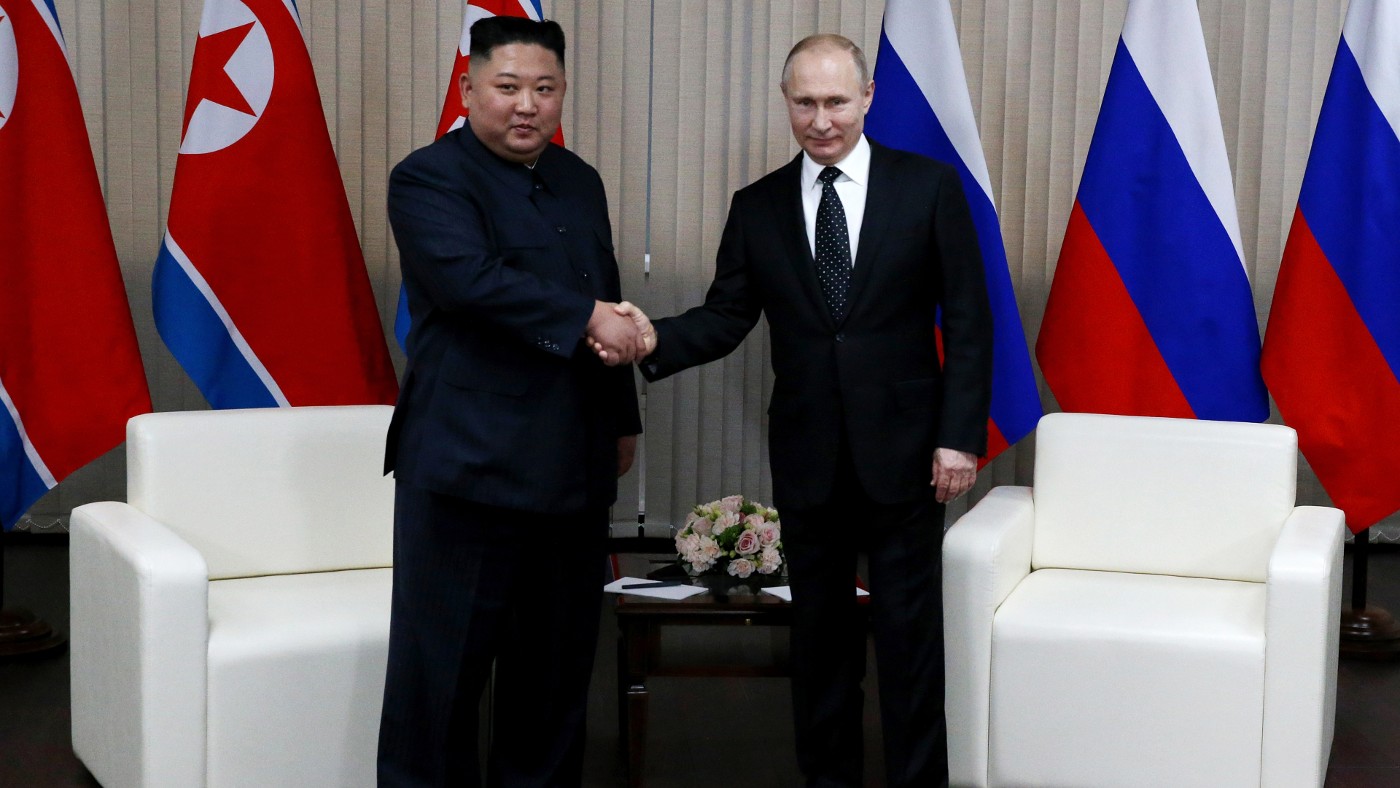 Would North Korean weapons tilt the war Russia’s way?
Would North Korean weapons tilt the war Russia’s way?Today's Big Question Putin wants to boost ‘depleted stocks’ but Pyongyang’s arms may be in poor condition
-
 Nobody seems surprised Wagner's Prigozhin died under suspicious circumstances
Nobody seems surprised Wagner's Prigozhin died under suspicious circumstancesSpeed Read
-
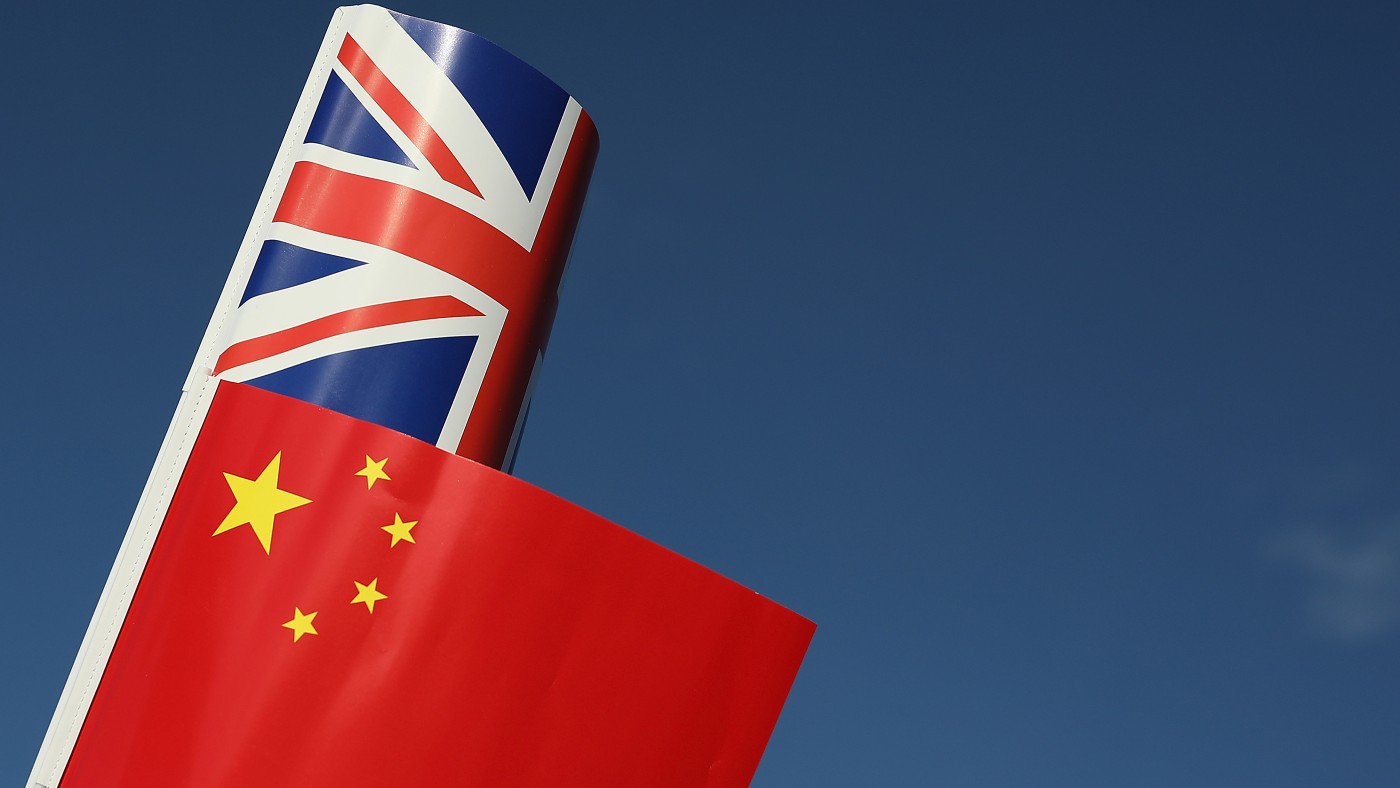 China’s ‘breathtaking’ infiltration of UK economy: an existential threat?
China’s ‘breathtaking’ infiltration of UK economy: an existential threat?Talking Point New report suggests Beijing is exerting political and economic influence on Westminster
-
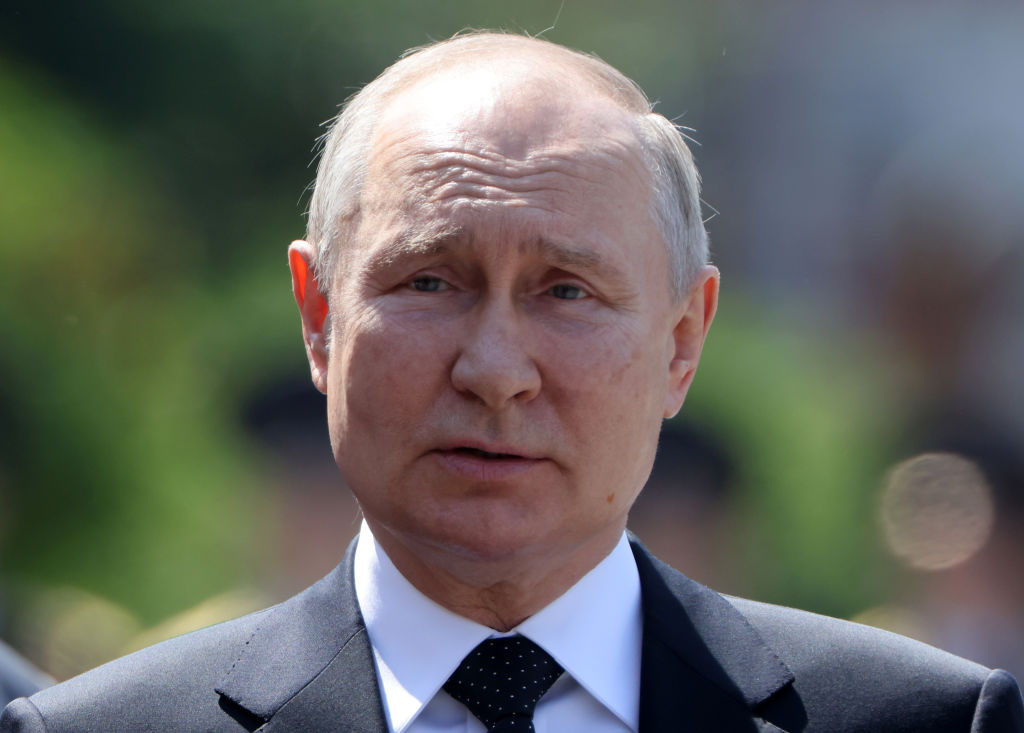 Putin's grip on power apparently damaged after Wagner mutiny
Putin's grip on power apparently damaged after Wagner mutinySpeed Read
-
 The Greggs Westminster Council sausage roll row explained
The Greggs Westminster Council sausage roll row explainedSpeed Read The high-street baker is appealing against a ban on serving hot food at its central London shop
-
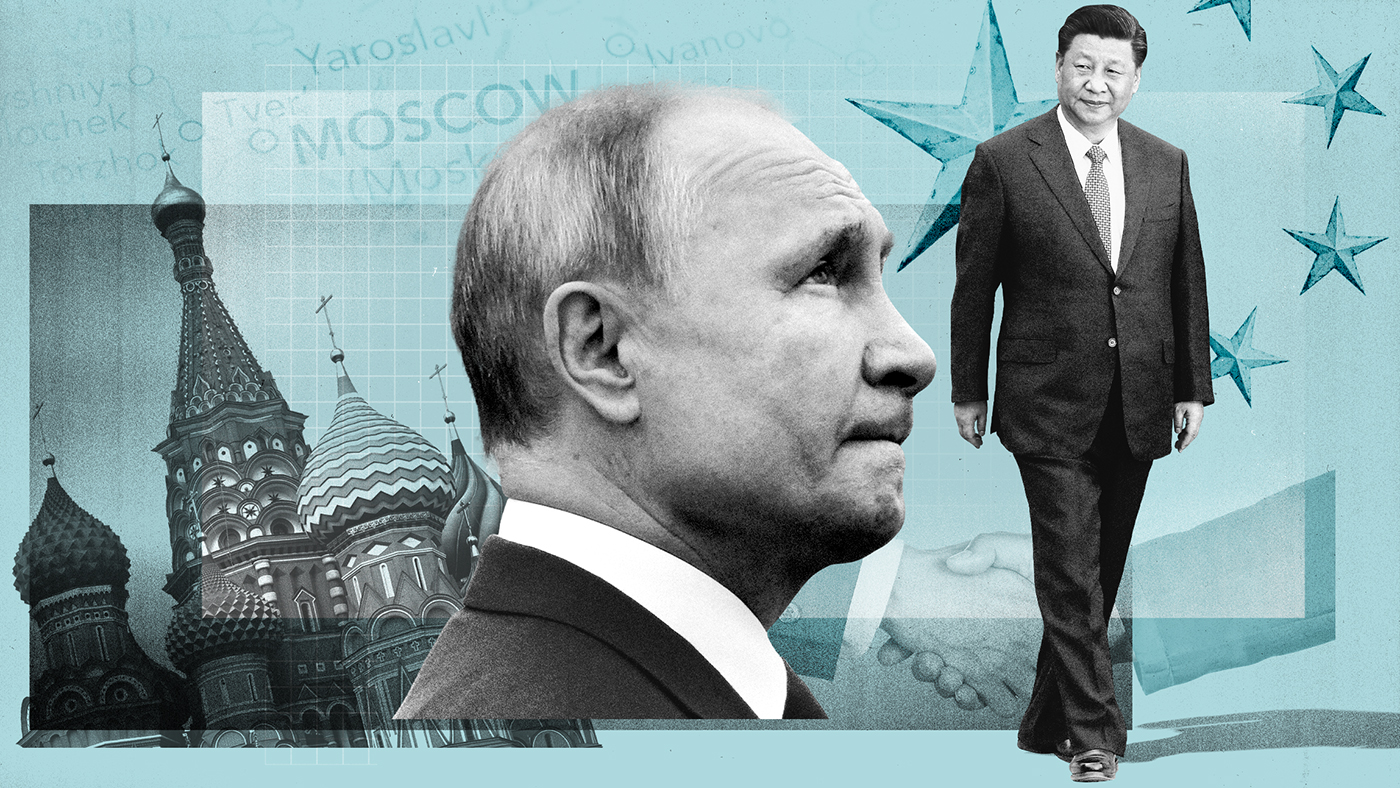 Is Russia a Chinese 'client state'?
Is Russia a Chinese 'client state'?Today's Big Question Reading between the lines of Xi and Putin's Moscow summit
-
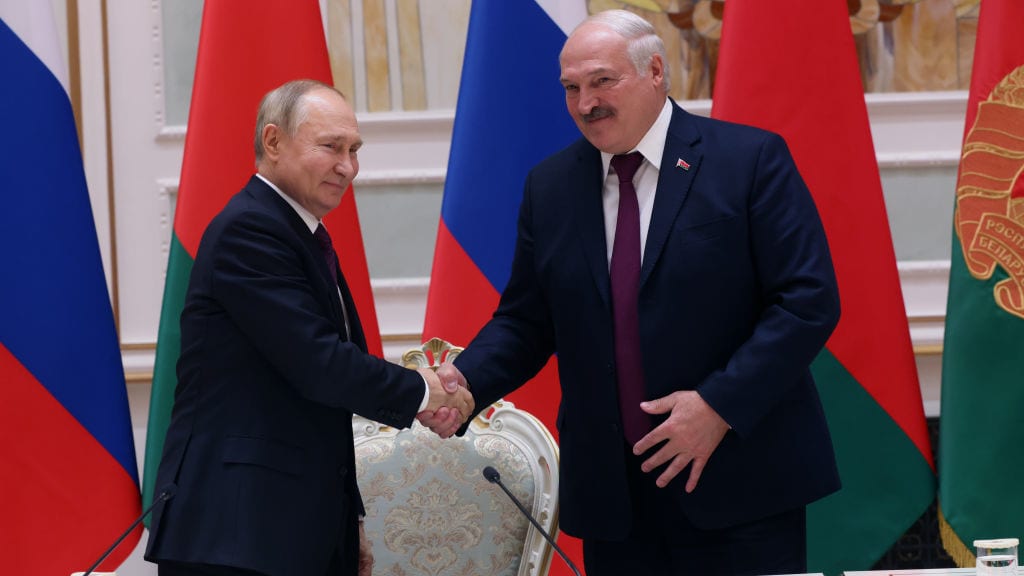 Putin, Lukashenko meet as Ukraine fears Moscow could launch offensive from Belarus
Putin, Lukashenko meet as Ukraine fears Moscow could launch offensive from BelarusSpeed Read
-
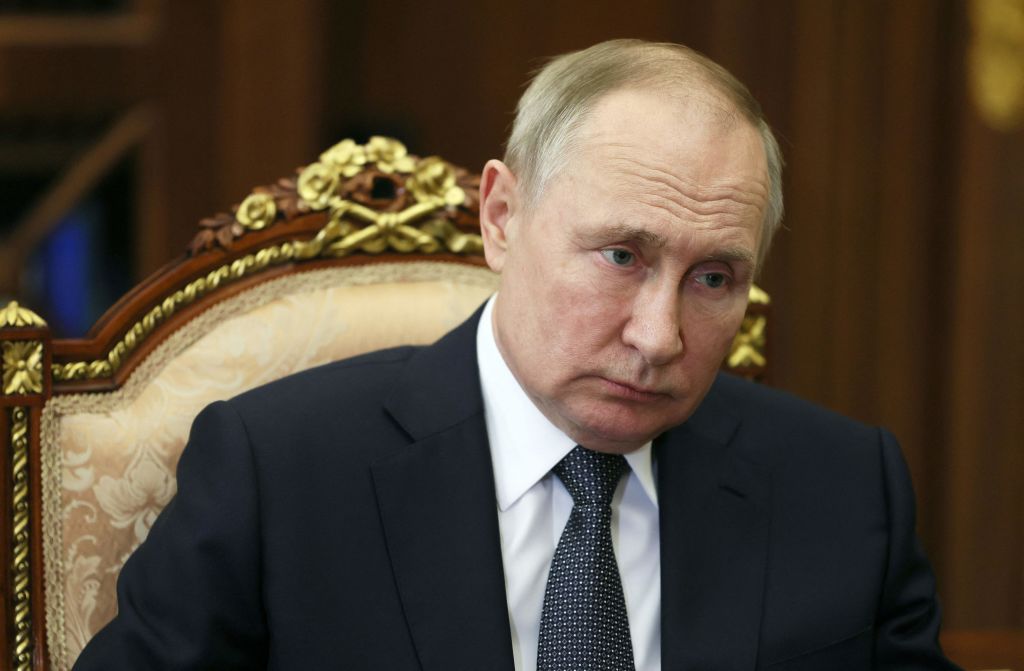 Vladimir Putin will skip annual year-end press conference for 1st time in a decade amid Ukraine setbacks
Vladimir Putin will skip annual year-end press conference for 1st time in a decade amid Ukraine setbacksSpeed Read